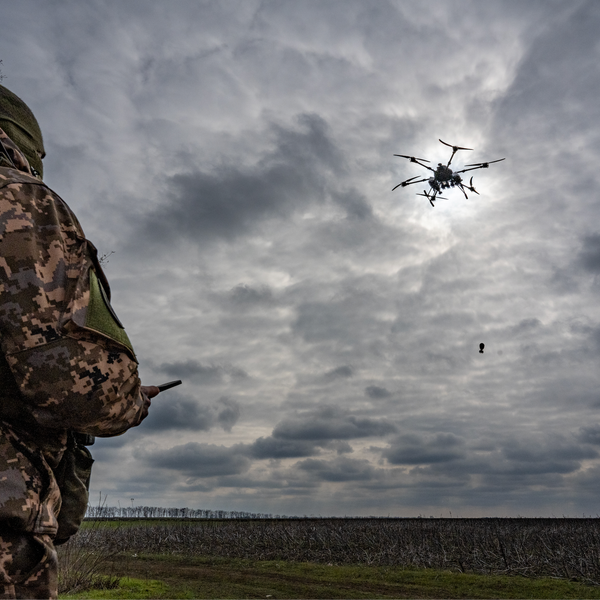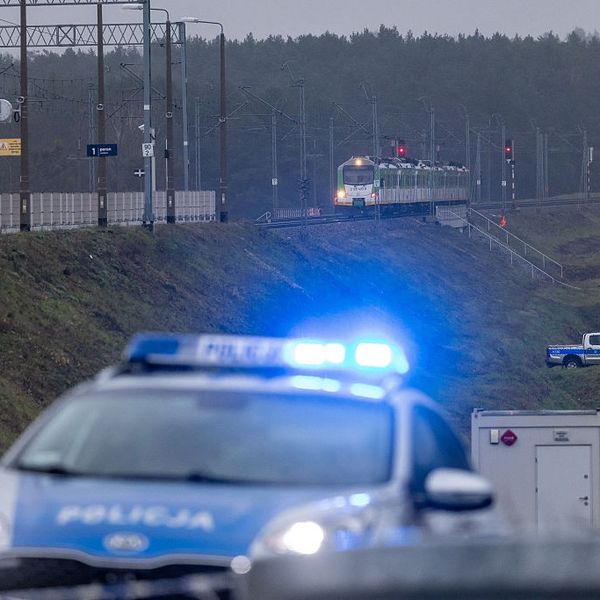The Cipher Brief continues it's coverage on Russia this week in light of the poisoning of Russian opposition leader Alexei Navalny. We tapped Cipher Brief Expert Michael Sulick who served as director of CIA’s National Clandestine Service, for his thoughts on Putin's Playbook for the West. While at CIA, Sulick also served as Chief of Counterintelligence and Chief of the Central Eurasia Division where he was responsible for intelligence collection operations and foreign liaison relationships in Russia, Eastern Europe and the former republics of the Soviet Union.
Sulick is also a featured speaker at the 2020 Cipher Brief Threat Conference.
The Cipher Brief: Governments have taken measures against Russia in the past when they believed Russia was behind poisonings of those who were seen as enemies of the Kremlin. Why do you think those actions haven’t stopped poisonings using the nerve agent Novichok, which was developed by the Soviet Union?
Sulick: I think the Kremlin and their cronies are more concerned about dissent and exposure of corruption than by foreign criticism. I think that's especially true now because Russia has gone through a pandemic which affected the economy and has put them on a road to long-term economic stagnation. Putin's poll numbers are falling. They are still enviable by Western standards, but they are falling. There are protests outside of their normal venue - in Moscow or St. Petersburg - and instead they are happening way out in the Russian Far East. Belarus represents Putin's worse fears, just like the Ukraine, which is democracy in his neighborhood. So, combined, I think that's ratcheted up their concern about civil strife.
Typically, when the Russian bear gets cornered, he strikes back with his claws. This particular method is obviously effective. They claim plausible deniability, on one hand, and at the same time, they use a substance like Novichok because they think they can have their cake and eat it too, in a sense. So, they deny that they did it, yet they send this terrifying signal to others about what their fate could be.
The use of Novichok is ironic too, because it's obviously a well-known Russian substance. So, the Kremlin answers back and says, "Well, how could it be us? You think we're that stupid? Would we use a Russian brand name like that?" In fact, they use it because they want to deny and also intimidate. They've also received pretty minimal blowback from most of the world, for most of these incidents. Russian regimes - not just Putin - but all Russian regimes have historically continued to push and push until they meet some resistance. But they haven't received much resistance in the past, except some outraged criticism from abroad, and some sanctions.
The Cipher Brief: What do Western governments need to understand when developing strategies to try and deter this kind of behavior?
Sulick: They need to understand that the Kremlin won't try to manage foreign relations sensibly or stop this aggression unless there are serious consequences. The sanctions have hurt, but Russia has survived with them and has grown accustomed to them. I think you might want to consider more serious sanctions, maybe against specific business sectors. I also think that the exposure of corruption, which was one of Navalny's main issues, might've angered the Kremlin even more than his protests against the regime. Putin was outraged by revelations in the Panama Papers a couple of years ago, that included information about some of his closest cronies. So, I think, clearly, more of this kind of exposure might convince them that any of these actions by Russia are going to involve serious consequences.
The Cipher Brief: How concerned are you about the continued use of poison? Because of the numbers of attacks, are we drifting into complacency about this?
Sulick: Yes, we are. I think we already have, to some degree. The Skripal poisoning took place on British soil so there was an ability to investigate it. Navalny's incident took place in Russia so any outside body or international body trying to investigate that one is going to meet with all kinds of obstacles. The other thing to consider is that Navalny had a lot of enemies. With the Skripal story, clearly the enemy was the regime and the GRU. Navalny made a lot of enemies besides Putin. His campaign against corruption has named other people so in a sense, there's such a full range of potential perpetrators and that's yet another reason that the regime to say, "Hey, our hands aren't dirty in this one."
The Cipher Brief: How do you think the US Intelligence Community's relationship is relative to Russia these days and, in particular, how have you observed that changing over the years?
Sulick: I would imagine - and this is my opinion - that there is still probably some information sharing on terrorism. That was always one of the only areas that lasted through times of strained relations. But I doubt, in today's climate, that there is cooperation on much else, especially because of the harassment that we’ve seen in the past few years where there have been clearly situations like an American Embassy official getting beat up right in front of the entrance to the American compound in Russia. Examples like that are beyond the pale, to me, of the tacit rules of the game that were developed during the Cold War and in the years thereafter. Things might have been rough in the first few years, but after a while, nobody was beating each other up. So, I think there is a lot more friction in the relationship now.
The Cipher Brief: How do you think about and explain the U.S. relationship with Russia, given your perspective?
Sulick: I think that both sides have looked at each other through their own lens, and that's probably complicated understanding over the years. As far as Russia, I don't see a difference between communist Russia and present-day Putin's Russia. The Russians have always been about nationalism. There is a group of conservatives in Russia called Slavophiles, and they have this very conservative, almost mystical, belief that Russia is a bridge between East and West, the third Rome. And they believe they have a historical mission. I don't think they ever abandoned that belief during communist times. Communism was just a veneer to allow them to expand beyond their borders. They never really believed it, nor did they ever practice it. Today, we’re witnessing naked nationalism in Putin's Russia. Putin wanted to restore that sense of Russia’s special place in the world, and that required nationalism. Hence, his focus on Russian history, glorifying their superpower past, and restoring what they perceive was the humiliation they suffered when the Soviet Union collapsed. That guides all of his decisions, whether it's repression of the population, because there's always this feeling that the Russian people, left to their own devices, are undisciplined and anarchic, so they need a strong ruler. Some even use the phrase, "The Russian people need the whip." His foreign policy is all about regaining Russia’s rightful place as a global player as they were before the Soviet Union collapsed. The expansion in the middle east, the intervention in Syria, the attempts to drive wedges between countries in the West, it's all part of this historic vision and Putin truly believes in it.
The Cipher Brief: We’ve heard a lot that Putin aims to sow chaos in the west, but do you think Putin’s belief extends beyond restoring Russia's previous greatness, to actually trying to inflict real damage on the US?
Sulick: Yes, I think he wants to undermine the U.S., because part of his belief is also a belief in the moral decadence of the West, and that Russia is really spiritually and politically powerful and destined for this greatness. If you believe in that moral decadence, then obviously they would want to accelerate it. That's why he fears a united NATO. Certainly, he loves to drive wedges in between the United States and Europe.
Russians grew up with this belief, too. You can ask your average Russian about something that took place during World War II, and they're familiar with the Battle of Stalingrad. Whereas, most Americans, probably don’t have the same level of historical perspective. I think Russians have a better sense of their history because it's drummed into them from childhood.
The Cipher Brief: Any final thoughts as it relates to these issues with Russia's foreign policy? The U.S. has a renewed focus within the military and intelligence community on great power, competition, and retooling the defense policy to align it more against conflicts with Russia and China. There are ongoing tensions in Eastern Europe, as you mentioned with Ukraine and the Belarus issue. What emerges as your top concern regarding Russia these days?
Sulick: I would go back to what I said about Russia’s perceived historical mission. Survival is paramount to any Russian regime, not only the Putin regime. It was the same with communism and czarism. Combine that with the weakening of Putin’s perceived competitors, as I mentioned before, and that he likes to drive wedges. That will remain the primary guide to his decision making, more important than forging close ties or achieving some understanding with the US and the West. Russia will only reach an understanding if it's placed into that mission and into their interests.
Also read Is Russia getting away with Murder exclusively in The Cipher Brief
Find more expert-driven national security opinion, insight and perspective in The Cipher Brief












